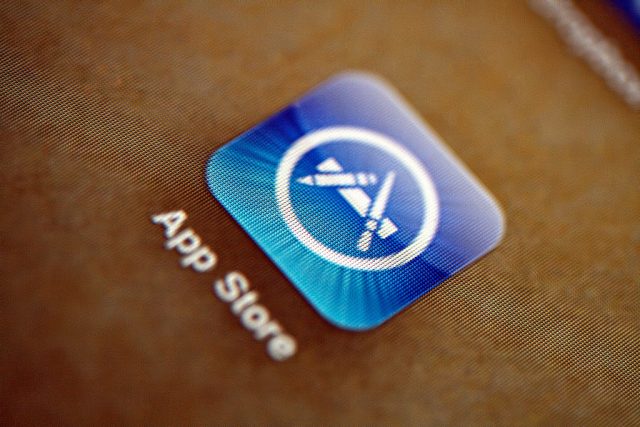
Apple officials are cleaning up the company's App Store after a security firm reported that almost 40 iOS apps contained malicious code that made iPhones and iPads part of a botnet that stole potentially sensitive user information.
The 39 affected apps—which included version 6.2.5 of the popular WeChat for iOS, CamScanner, and Chinese versions of Angry Birds 2—may have been downloaded by hundreds of millions of iPhone and iPad users, security researchers said. The programs were infected by a tampered version of Apple's legitimate iOS and OS X app development tool called Xcode. A repackaged tool, called XcodeGhost, surreptitiously inserted malicious code alongside normal app functions that caused the app to report to a command and control server. From there, the app reported a variety of device information, including the name of the infected app, the app bundle identifier, network information, the device's "identifierForVendor" details, and the device name, type, and unique identifier.
Details of the infection were first reported late last week by security firm Palo Alto Networks in blog posts here and here. Researchers from mobile security firm Lookout independently analyzed the same apps and on Sunday issued a blog post that read in part:
XcodeGhost is an example of compiler malware. Instead of trying to create a malicious app and get it approved in the App Store, XcodeGhost’s creator(s) targeted Apple’s legitimate iOS/OSX app development tool called Xcode to distribute the malicious code in legitimate apps.
XcodeGhost’s creators repackaged Xcode installers with the malicious code and published links to the installer on many popular forums for iOS/OS X developers. Developers were enticed into downloading this tampered version of Xcode because it would download much faster in China than the official version of Xcode from Apple’s Mac App Store. When the developers installed what they thought was a safe Apple dev tool, they actually got a tampered version that would compile the malicious code alongside their actual app’s code.
These developers, unaware that their apps had been tampered with, then submitted those apps to the App Store for distribution to iOS devices.
The post went on to say that Lookout researchers are still working to verify claims that the infected apps can receive commands from the control servers that open specified Web addresses and generate dialog messages in an attempt to phish sensitive data such as infected users' Apple ID credentials.
This isn't the first time a malicious app has made its way into the App Store, since there are a handful of other times bad titles have been found. Still, the number of infections and of the iOS users potentially affected appeared to be highly unusual, if not unprecedented. What's more, Chinese firm Qihoo360 Technology, reportedly has said the number of affected apps is much bigger than originally reported, with a total of 344.
The list of infected apps includes some of the most popular apps in China, including the ride-hailing app Didi Kuaidi. WeChat, which has some 500 million users, was also affected, although the infection was limited only to version 6.2.5. People using version 6.2.6 and later aren't affected, the chat developer said in a blog post.
Apple officials didn't respond to Ars e-mails seeking comment for this post. In articles posted over the weekend, company officials acknowledged the infections and said they were removing the affected apps from the company's highly curated App Store. They also said they were working to make sure developers of legitimate apps have access to the official version of Xcode so they won't mistake it for the rogue Xcode look-alike. According to iOS developers here and here, the app developers tricked into using XcodeGhost had to explicitly bypass warnings from Gatekeeper, the Mac security feature that restricts the sources of apps that can be installed on a Mac. By default, apps must be downloaded from the App Store or be cryptographically signed.
A blog post from researchers at the Sans Institute provides the following guidance:
If you're an iPhone user:
- Check for HTTP traffic to http://init.icloud-analysis.com in your firewalls or proxies logs.
- Check for traffic to the IP addresses listed above.
- Remove the apps listed as malicious.
- Change passwords on websites used by the malicious applications.
If you're a developer:
- Check if the file Library/Frameworks/CoreServices.framework/CoreService exists in the Xcode SDK/Applications/Xcode.app/Contents/Developer/Platforms/iPhoneOS.platform/Developer/SDKs/.
- Always download resources from official locations and double-check the provided hashes (MD5/SHA1).
Since its debut, Apple's App Store has been extremely selective about the apps it makes available, a practice that has long invited comparisons to a walled garden. Apple has never said exactly what types of vetting it carries out to ensure that App Store titles are safe and securely designed. Whatever checks the company carries out, they clearly didn't catch the malicious code inserted by XcodeGhost. Once the company fully recovers from this incident, the episode would be a great opportunity for officials to be more specific about exactly how it goes about scrutinizing apps and what it will be doing differently in the future to catch mass infections like this one.
Post updated to add details about Gatekeeper, figure from Qihoo360 Technology.
reader comments
237